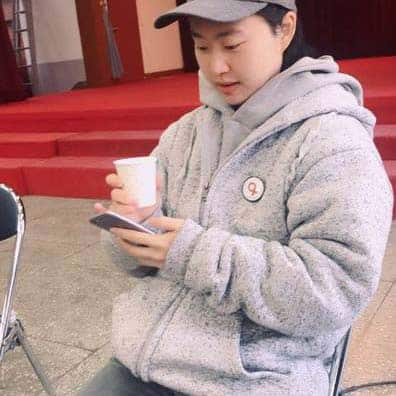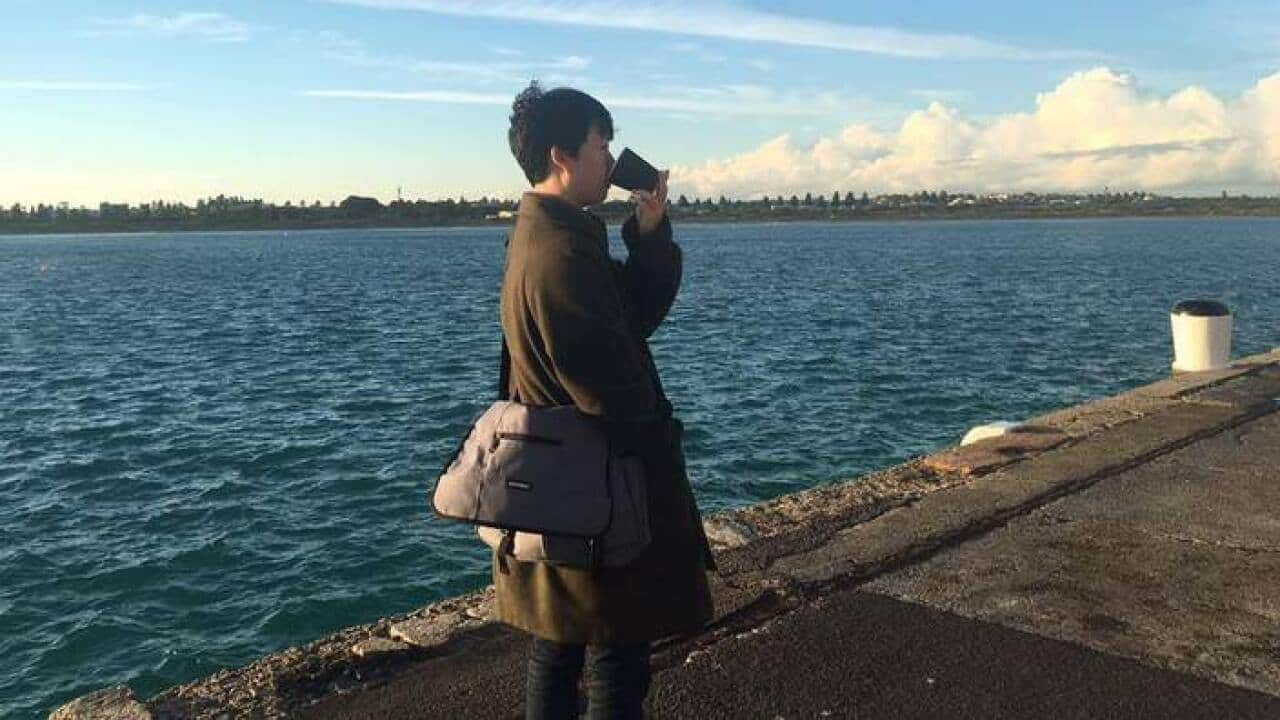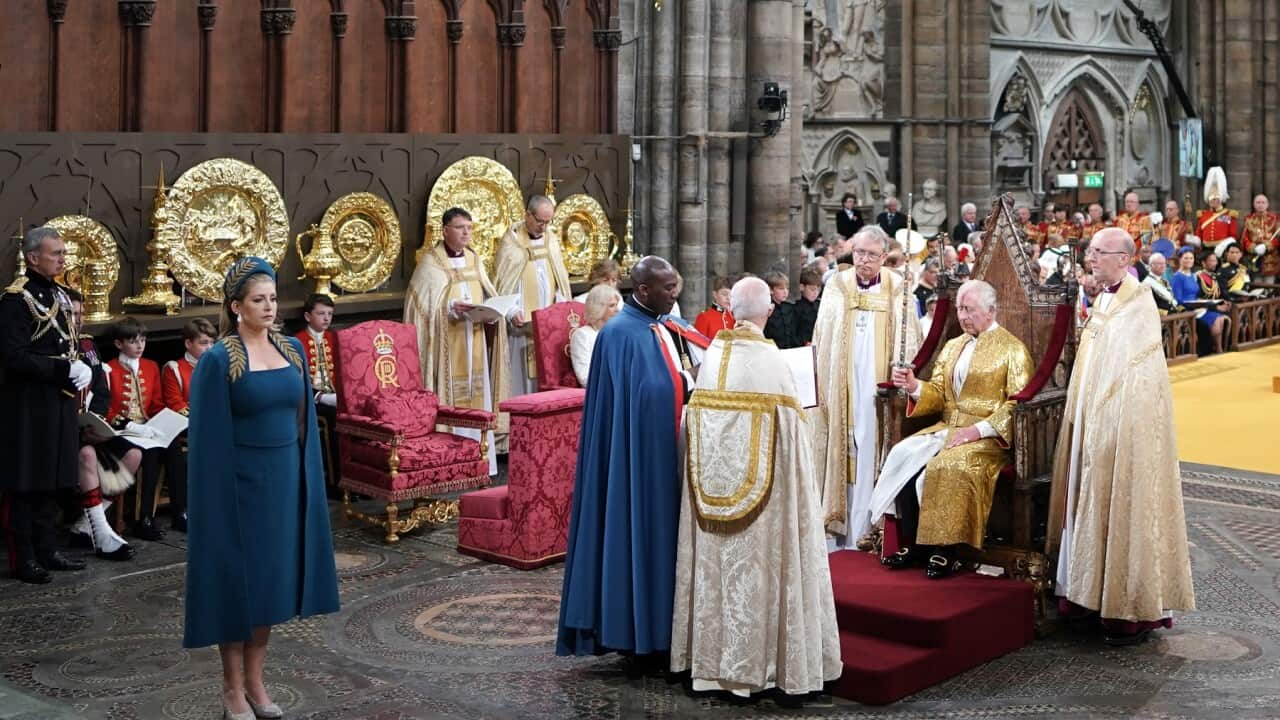24-year-old working-holiday-maker and transgender man Taylor Song spent a year living and working in Australia.
He tells SBS Korean that growing up, he had been a man trapped in a female body. Song says he was only five when he realised something about him was different.
"It was when I was five," says Song. "I saw a woman coming out of a shop and I thought when I grow up, my body would be transformed like her - but actually, I know I am not supposed to be like that."
However, he still didn’t realise that he was transgender until he first saw Korean celebrity and transgender woman Harisu, appeared on TV in 2001.
Song had never heard the word 'transgender' before and says he had no concept of it.
Now, as an adult, Song decided to come to Australia to earn money for his gender reassignment surgery.
He was told it is easy to save money through the Australian working-holiday program.
Cultural issues in the close-knit Korean community
In Australia, Song says no one knows his gender identity. This, and the fact that he can leave the country any time he chooses if need be, made him feel much more comfortable.
However, he says that when he had to approach the Korean areas in Melbourne to find a job, Song's life-long anxiety came back to haunt him again.
"I had sent a few CVs to Korean restaurants and I didn't know if shop owners would like to see my Korean social number where you can find out my birth gender," he explains.
"I was afraid that someone would say that guy was a man in that shop but now looks like a woman in this shop"
"I had deeply agonised over the gender issue again.
"I wasn’t sure if I have to introduce myself a woman or a man.
"People recognised me as a man from my appearance that time so eventually I worked as a male staff member.
“But, the Korean community was such a tight-knit society. Restaurant owners had known each other pretty well. I was afraid if someone would say that guy was a man in that shop but now looks like a woman in this shop."

Song explains that transgender people like him face moments of distressing choices every single day.
When they go to a bathroom, says Song, they agonise over choosing between the ladies or men’s room.
When they meet a person for the first time, a serious calculation has to be made in advance. "If this person has had a chances to meet someone who recognised me as a birth gender before," explains Song.
On top of that, they always have to be ready for how to react when people discover their gender transition.
Song has been living with these realities for more than 15 years but he says he never gets used to them.
The impact of same-sex marriage in Australia
Song hopes that legalisation of same-sex marriage in Australia will have a huge influence on the human rights of other minorities.
"Changing gender is often only allowed when transgender people remove their reproductive organs," says Song.
"But with the legalisation of the same-sex marriage, now transgender people don’t necessarily have to undergo major surgery in the hope of marrying someone who they love.
"It’s the same case to intersex people with two genders in them, so I think it is great news.
“I also believe that improvement of human rights to homosexual people will be slowly extended to other sexual minorities.”
"As a transgender is a minority amongst minorities, I thought, I wouldn’t ever able to talk to other transgender people in my life until I die."
Song, who returned to Korea after one year of living in Australia under the working-holiday program is now having a second gender reassignment operation.

After he completes his surgeries his plan is to study in Canada and become a medical practitioner.
Song says he wishes to have a simple and ordinary life. However, gone are the days that he was extremely lonely and isolated, instead he is choosing to share his own stories in public for other transgender people still in the shadows.
“I was so lonely and needed comforts but as a transgender is a minority amongst minorities, I thought I wouldn’t ever be able to talk to other transgender people in my life until I die," says Song.
"I was fortunate enough to meet other transgender mates and that gave me a lot of courage and comfort so I wanted to share this energy with others."
When you meet a transgender person
Song calls for others to keep these messages in their minds when they meet other transgender people, who remain one of the most marginalised minorities - particular within the Australian Korean community.
“Please don’t judge transgender people on the basis of their appearance," he says.
"It is possible for transgender men to also like things that women usually like - such as a long hair styles, earrings etcetera.
"If you say 'you don’t seem like a man' it can be discourteous."
Song shares some of the encounters he has had to face as a transgender man. “Sometimes, I was told things like; 'Wouldn’t it be better to live as a homosexual person?' 'Why don’t you live an ordinary life without surgery?' 'You can simply hide yourself.'"
"If I were a transgender person who doesn’t want to have an operation, it wouldn’t matter," says Song.
"For me, surgery is not a choice but an essential step to survive.
"I should call it 'treatment' instead of surgery, because if I don’t do it or if I don’t do it at the appropriate time, it will become a critical problem for me."
Listen SBS Korean's full story (in Korean) via podcast in the audio player above.
“As a transgender is a minority amongst minorities, I thought, I wouldn’t ever able to talk to other transgender people in my life until I die…”




